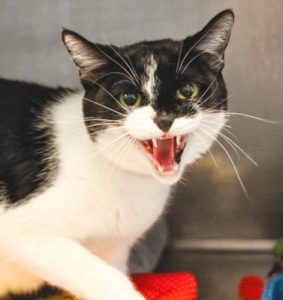In a perfect world, all cats would have a loving home. Unfortunately, unaltered cats permitted to roam freely either become feral or produce feral offspring. Feral means wild, meaning these cats are unsuitable as pets. Rather than kill feral cats I promote reducing their numbers through a process called TNR (Trap/Neuter/Return). This process is managed through an Ed Boks program called Operation FELIX (Feral Education and Love Instead of X-termination). 
Why not just kill feral cats? Besides being inhumane, these felines serve a valuable community purpose. Feral cats keep rodents in check; and they do this without the use of pest control chemicals that are toxic to the environment and dangerous to pets, wildlife and children. By reducing rodent populations, feral cats also help reduce the incidence of many diseases carried by rodents, including the Plague, Leptospirosis and Hantavirus Pulmonary Syndrome..
Feral cats are how a community controls rodent infestation and disease; TNR is how a community controls its feral cat population.
Leonardo Fibonacci, a preeminent mathematician during the Middle Ages, created a formula relating to agriculture productivity. Six centuries later, Louis Pasteur, used this model to accurately predict that 70 percent of a susceptible population has to be vaccinated to prevent an epidemic of a contagious disease. This discovery came to be known as Fibonacci’s 70 percent Rule which is recognized today by the World Health Organization and the Center for Disease Control.
If we consider sterilization as a method of “vaccinating” feral cats against the “disease” of overpopulation then, according to the Fibonacci Rule, 70 percent of the susceptible feral cat population in your community must be sterile to affect a population decrease. Once the 70 percent rate is achieved, the transmission odds (successful breeding encounters) of the remaining 30 percent will only be enough to replace normal attrition.
Municipal leaders are well advised to help this effort by allocating monies to help fund Operation FELIX type programs in their local community.
Every community can choose to pay the modest costs of funding targeted spay/neuter programs designed to fix the problem or they can continue to pay the ever increasing costs of catching and killing animals. I promote proactive solutions and hope you’ll support this effort by implementing an “Operation FELIX” program in your community. For more information contact me.
